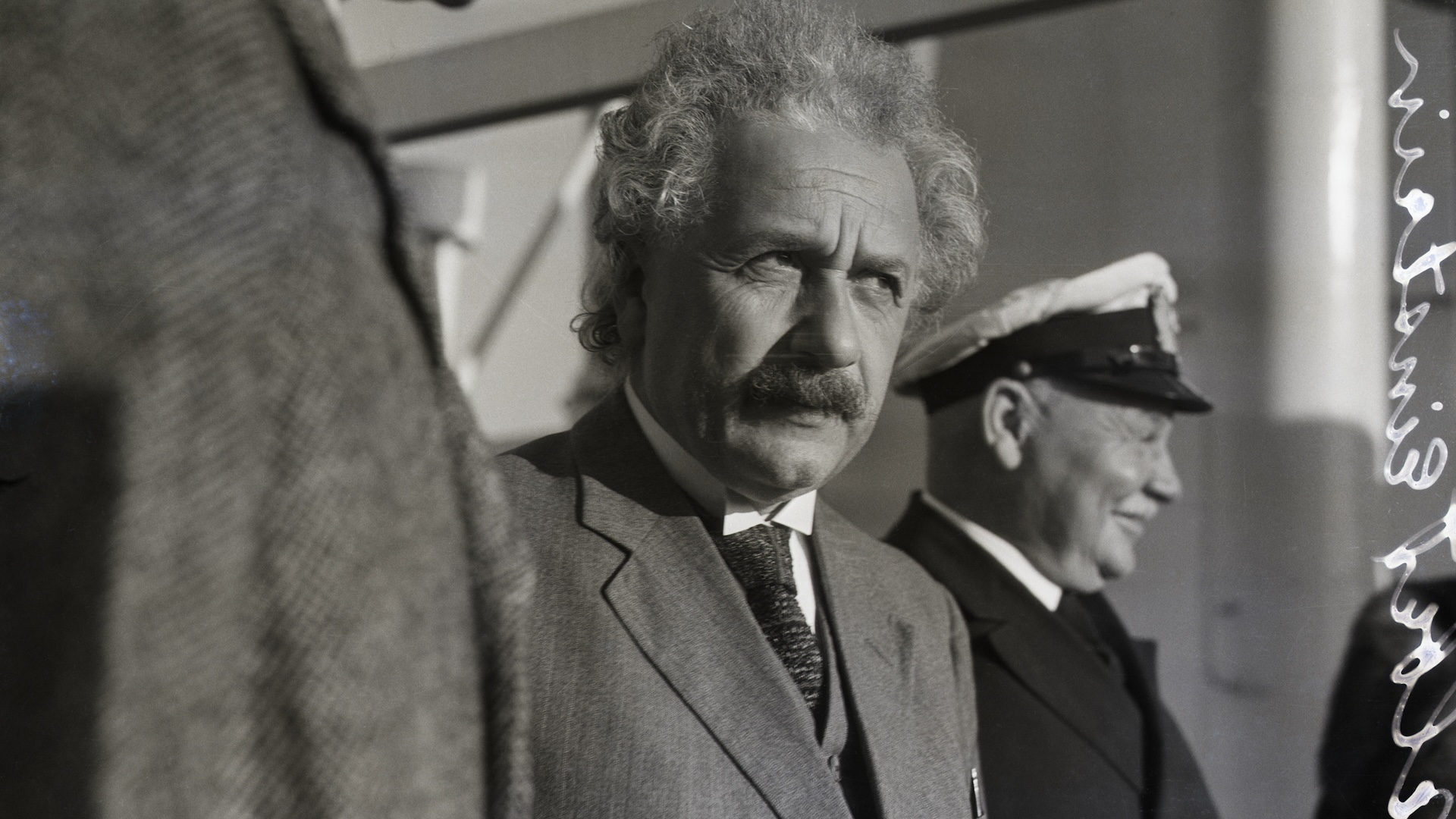
A letter that Albert Einstein penned in 1952 for a Japanese journal has been put up for auction. Titled "On my participation in the atom bomb project," the document details Einstein's thoughts on the global nuclear arms race after being prompted by a magazine editor to defend his support for America's nuclear weapon program during World War II.
Einstein was not involved in developing the atomic bomb directly, but in August 1939 he wrote a now-infamous letter to President Franklin D. Roosevelt warning that Adolf Hitler and the Nazi party were likely on the brink of developing atomic weapons. This prompted Roosevelt to launch a secret nuclear program in the U.S., which became known as the Manhattan Project.
A lifelong pacifist, Einstein later felt remorse for his part in persuading the U.S. to engineer — and later deploy — the atomic bomb. Near the end of his life, he called his letter to Roosevelt his "one great mistake."
"To kill in war time, it seems to me, is in no ways [sic] better than common murder," he wrote in the 1952 letter.
According to Bonhams, which is auctioning the letter, the missive was written in response to Katsu Hara, Einstein's longtime friend and editor of the Japanese magazine "Kaizō," who sent the physicist a series of letters after World War II. In one, he asked bluntly, "Why did you co-operate with the production of the atomic bomb although you were aware of its tremendous destructive power?"
Coming from a colleague whose country had so recently been devastated by two U.S. atomic bomb strikes — The United States detonated atomic bombs over Hiroshima and Nagasaki on Aug. 6 and Aug. 9, 1945, killing more than 100,000 people — the question seems to have hit a nerve with Einstein.
Related: 32 fun and random facts about Albert Einstein
"I was well aware of the dreadful danger for all mankind, if these experiments would succeed," Einstein responded in the letter. However, "I did not see any other way out," he wrote, adding that the prospect of Germany building an atomic weapon first was too grave for him to ignore.
In the letter, Einstein went on to advocate for "radical abolition of war." He called Mahatma Gandhi "the greatest political genius of our time," and commended Gandhi's nonviolent protest movement against Britain's colonial rule over India as a model for liberation and political action.
Hara published the letter in its original German, along with a Japanese translation, in 1952. The letter going up for sale is the first English version, which was translated in 1953 by theoretical physicist Herbert Jehle along with help from Einstein, according to Bonhams.
The document features Einstein's signature at the bottom, as well as some penciled-in corrections to typos in the text. Jehle published this version in the Society for Social Responsibility in Science newsletter, of which he was an editor.
The auction closes June 24, and the letter is expected to sell for between $100,000 to $150,000.







